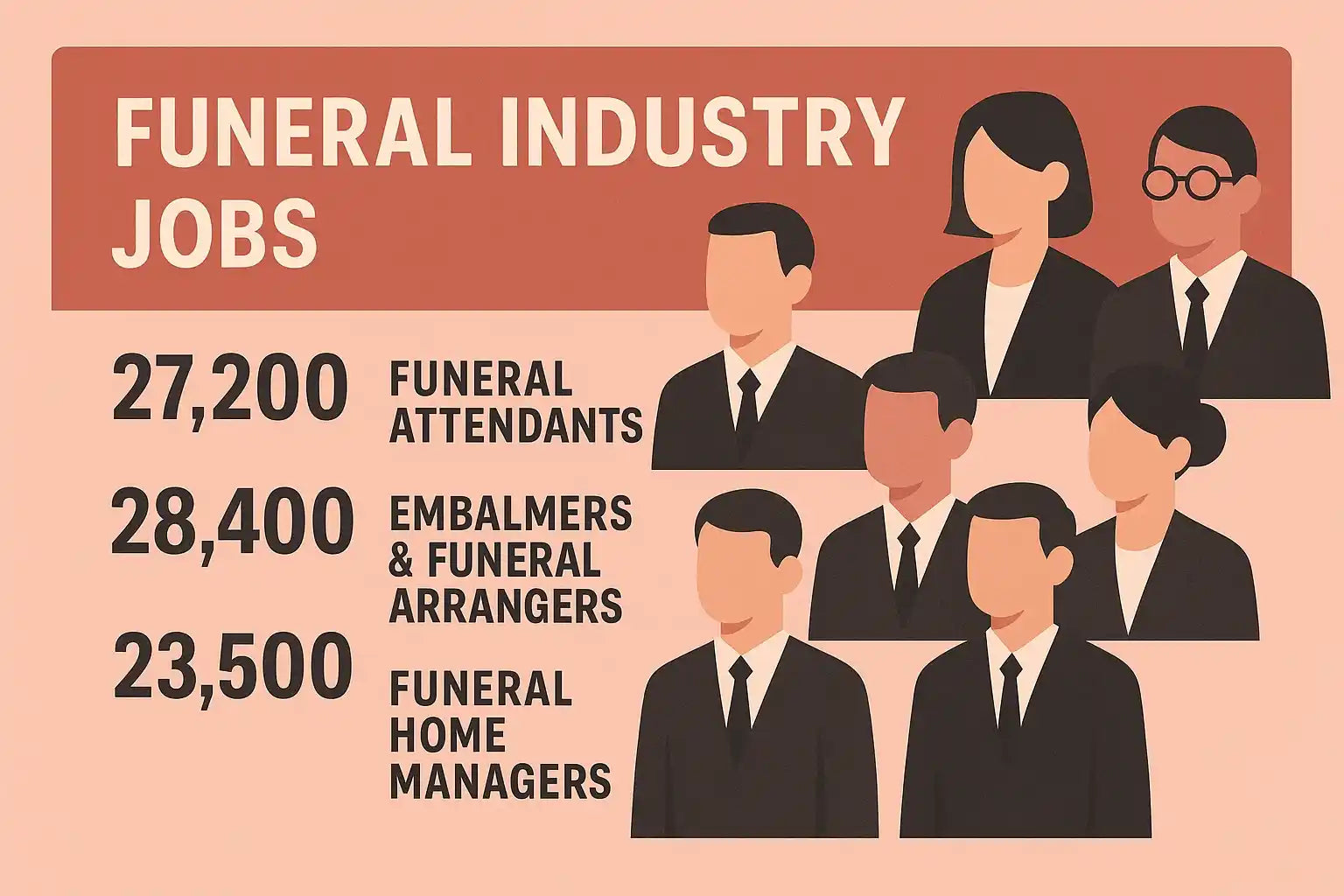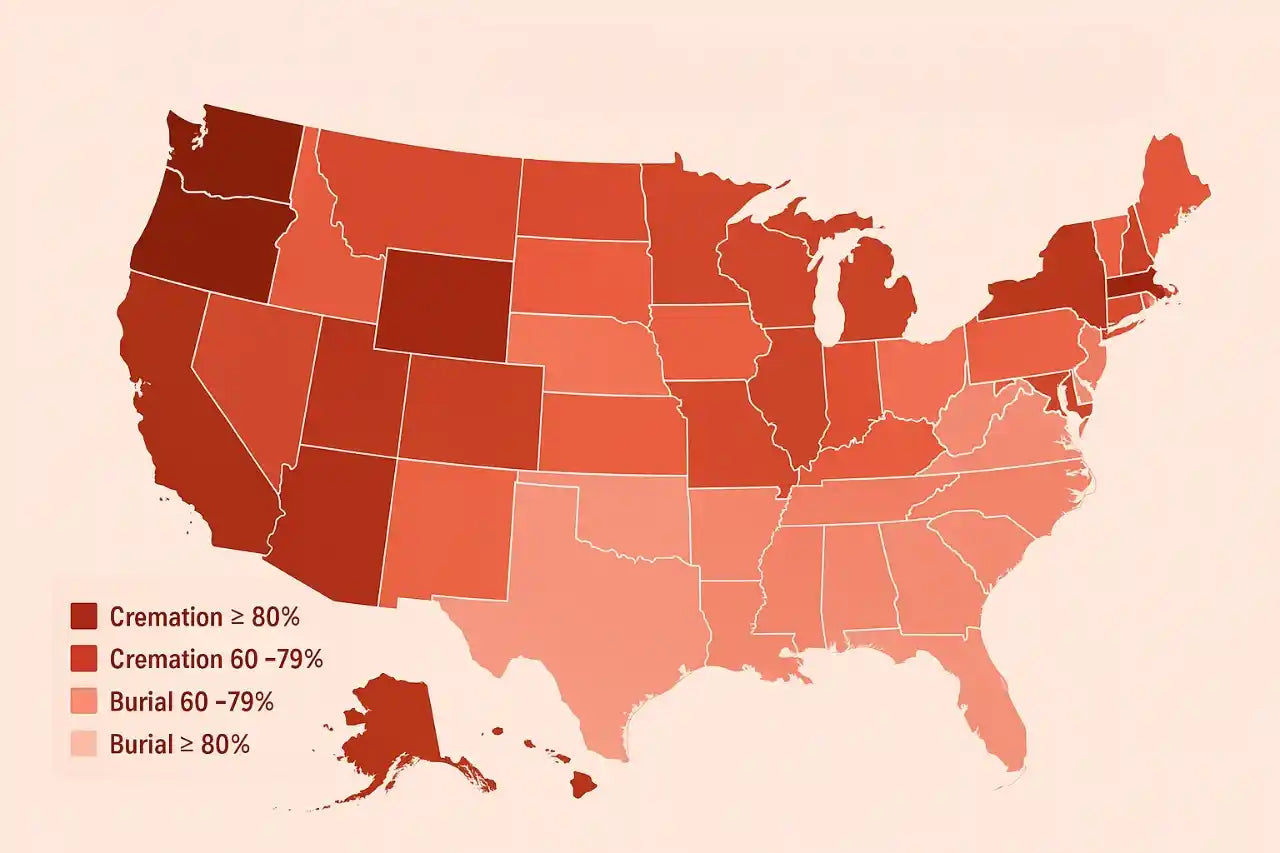When dressing for a funeral, wearing black, formal clothing is a common choice. This is typically the safe option. However, clothing expectations vary heavily depending on the type of service, when it is held, and where. Knowing what is expected can sometimes be tricky because many commonly followed funeral practices are rooted in Victorian-era etiquette rules that may not apply to current norms and mores.
Death goes hand in hand with life, but funeral rituals have changed radically over time. The Victorians, for example, made death and its rituals a central component of their culture and developed rigid customs concerning mourning. If a spouse or parent died, a person might wear black for an entire year and then for six months, "half mourning," which meant gray for men and mauve for women.
There were also strict rules about the formality and types of clothing that were to be worn at mourning events like funerals or memorial services, dictated by factors such as one's relationship to the deceased, one's status, and even one's profession. These traditions carried on well into the twentieth century and, for some cultures, remain in place today.
In most of Europe and North America, highly ritualized mourning customs were discarded mainly by the middle of the 20th century. Generally, they assumed the scale and appearance by which they are recognized today.
For men, some unique funerary traditions from this era included wearing a black armband following the death of a parent, spouse, child, or sibling. The intention of this band was to inform others that the wearer was grieving and, therefore, should be extended specific special consideration. Armbands could also be worn as a sign of respect for the fallen. To this day, for instance, public servants like police officers or firefighters will wear a black band over their badges to acknowledge the deaths of fallen comrades.
In general, however, strict funerary rituals have largely fallen by the wayside. As a result, more and more people have questions about the etiquette surrounding death. This guide is an attempt to answer those questions and alleviate any concerns.
What style of clothing is expected at a funeral?
Funeral attendees are usually expected to wear formal and modest clothing. However, this can mean different things to different people. For example, a t-shirt may be viewed as appropriate during a celebration of life ceremony but may be considered too casual when attending a funeral home, a church or other funeral venue.
It's a good idea to bring some sort of jacket or coat with you as it can often get cold at the venue and you can use pockets to keep tissues at the ready without digging into your handbag and missing part of the service.
Funeral Fashion Don'ts for Women
According to editors at Cosmopolitan, you should generally avoid bright colors and loud prints (unless otherwise requested), other things to avoid include very revealing or overly casual clothes, like ripped jeans, sheer tops, or pieces with inappropriate cut-out details.
Accessory-wise, keep things minimal. Your favorite oversized tote can stay at home; try opting for a clutch or smaller handbag instead. The same goes for jewelry - keep it classic and understated. Search your jewelry box for timeless silver and gold pieces, such as a simple chain or pair of hoops.
One accessory that people are often quite lenient about at funerals is sunglasses. Pack a pair in your bag or jacket pocket just in case. Grief can work in unexpected ways and if things suddenly get too much, or if you don't want to feel watched, you can pull out your glasses and simply put them on.
Do you always have to wear black at a funeral?
It's custom to wear black to funerals, so that's always a safe option to stick with. If, however, you are usually a flamboyant dresser and wouldn't feel like yourself in an all-black look, make sure to dress in darker tones (like deep brown, navy, or dark green) and avoid anything 'over the top' to avoid offending other mourners.
On rare occasions, some families might ask you to wear color to celebrate the deceased's life, which can make an otherwise morbid day and dress code a little more flexible.
Funeral Attire Tips by Occasion
Losing a loved one is never easy, and as you navigate the various end-of-life events, knowing what to wear can be a source of stress. Each event may have its own dress code and expectations, so Signature Headstone funeral experts put together this guide to help you choose the appropriate attire for different occasions during this challenging time.
1. Meeting with the Funeral Director:
- Dress conservatively and professionally; this is typically a formal and important meeting.
- Men should wear a suit or dress slacks and a dress shirt, while women can opt for a skirt, dress pants, and a blouse.
- Dark colors like black, gray, or navy are suitable, reflecting the somber nature of the meeting.
2. Wake or Visitation:
- Wakes are typically less formal than other events, but it's still important to show respect.
- Men can wear a suit or dress shirt and slacks, while women can choose a conservative dress or skirt and blouse.
- Dark, subdued colors are appropriate, but it's not necessary to be as formal as for the funeral director meeting.
3. Viewing or Visitation:
- Similar to a wake, dress conservatively but not overly formal.
- Men can wear dress slacks and a dress shirt, while women can opt for a modest dress or skirt and blouse.
- Dark or neutral colors are still appropriate, and comfort is key.
4. Church Services:
- For religious ceremonies, adhere to the dress code of the specific faith if applicable.
- Generally, men should wear a suit and tie, while women can choose a modest dress or a suit.
- Respectful attire is crucial, and it's best to err on the side of being slightly overdressed.
5. Celebration of Life:
- Celebration of life events tend to be less formal and more about honoring the person's life and personality.
- The dress code can vary, so consider the family's preferences or the venue.
- You can wear brighter colors and even incorporate elements that reflect the deceased's interests or personality.
6. Grave Site Burial Service:
- Dress warmly or according to the weather, especially if it's outdoors.
- Conservative and subdued attire is still recommended, but practicality and comfort are essential.
- Dark colors are suitable and consider bringing an umbrella if needed.
7. Other End-of-Life Events:
- There may be other events like memorial services, receptions, or family gatherings.
- Dress codes for these events can vary widely, so inquire with the organizers or family members if you're unsure.
- Always prioritize showing respect for the deceased and support for the grieving family.
Spare Your Survivors Emotional and Financial Stress with Funeral Preplanning
Another trend in funerals is preplanning. Our sister site, Overnight Caskets, makes it easy to make your own arrangements. It reduces emotional and financial stress on survivors, locks in a low price, and, most importantly, empowers you to have your wishes followed. Overnight Caskets is committed to delivering our customers an unparalleled standard of quality, care, and customer service. Our user-friendly ordering service and guaranteed delivery times provide peace of mind to families in trying times. Our dedicated customer service staff is available 24 hours a day, seven days a week, to assist you with any questions. We understand the severity of the matter and treat every order with the utmost importance.


